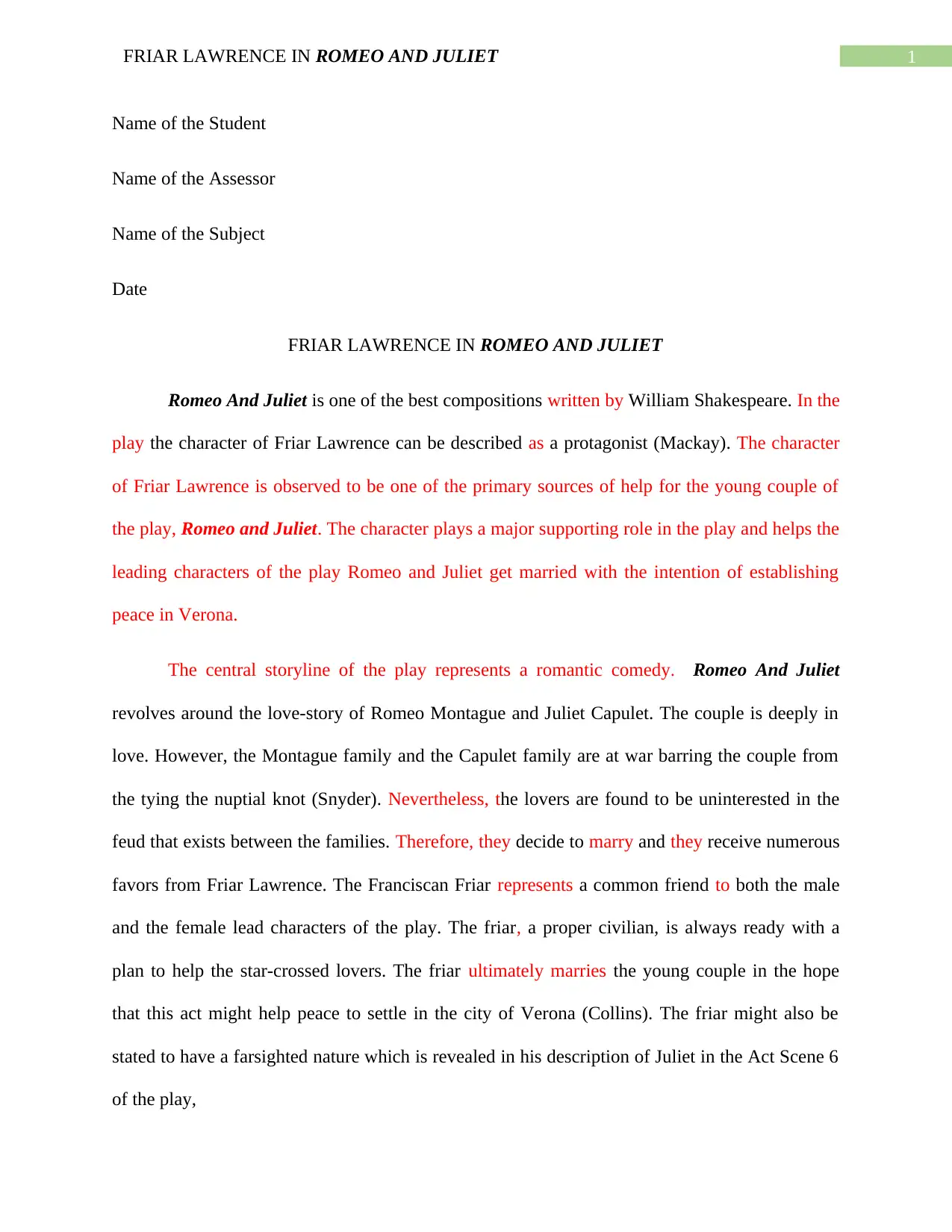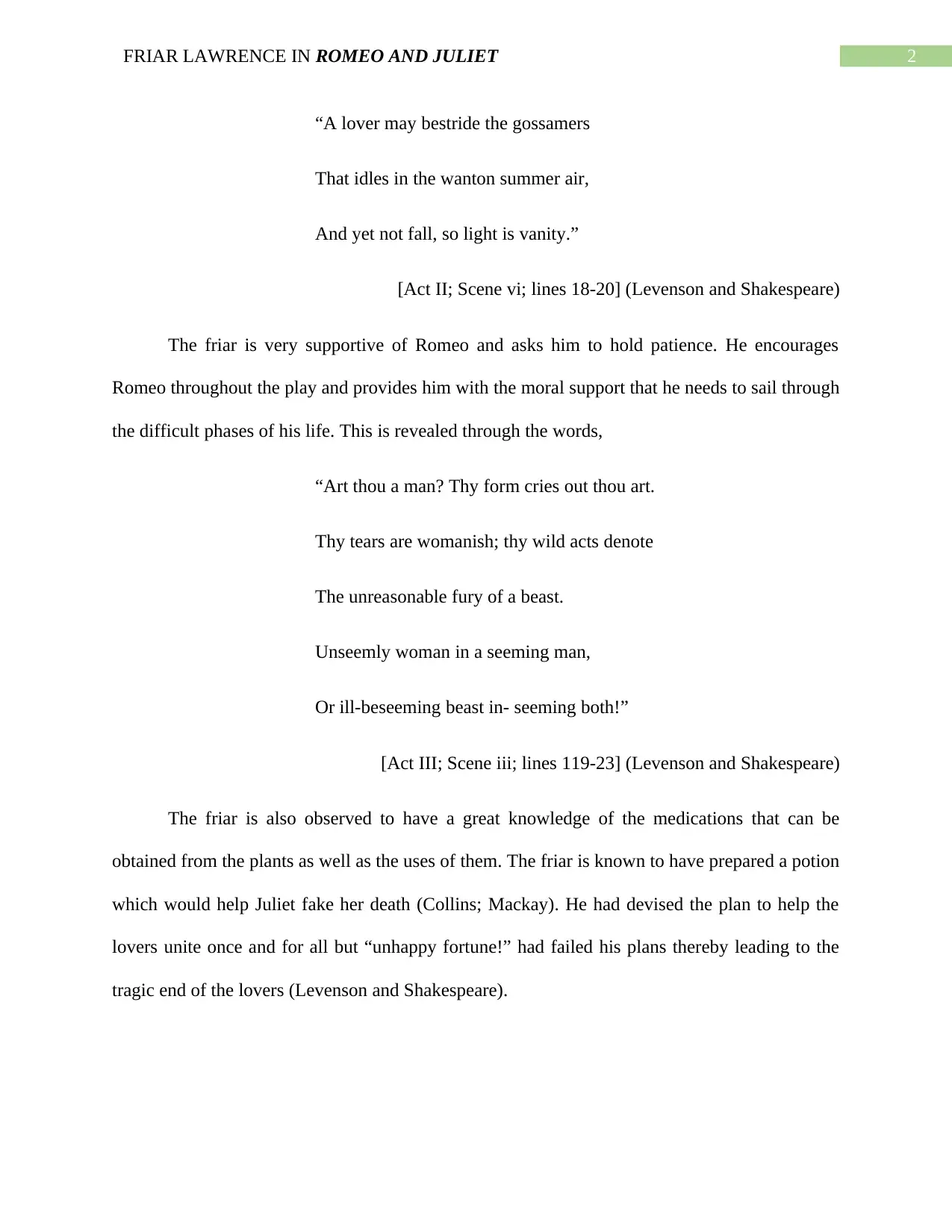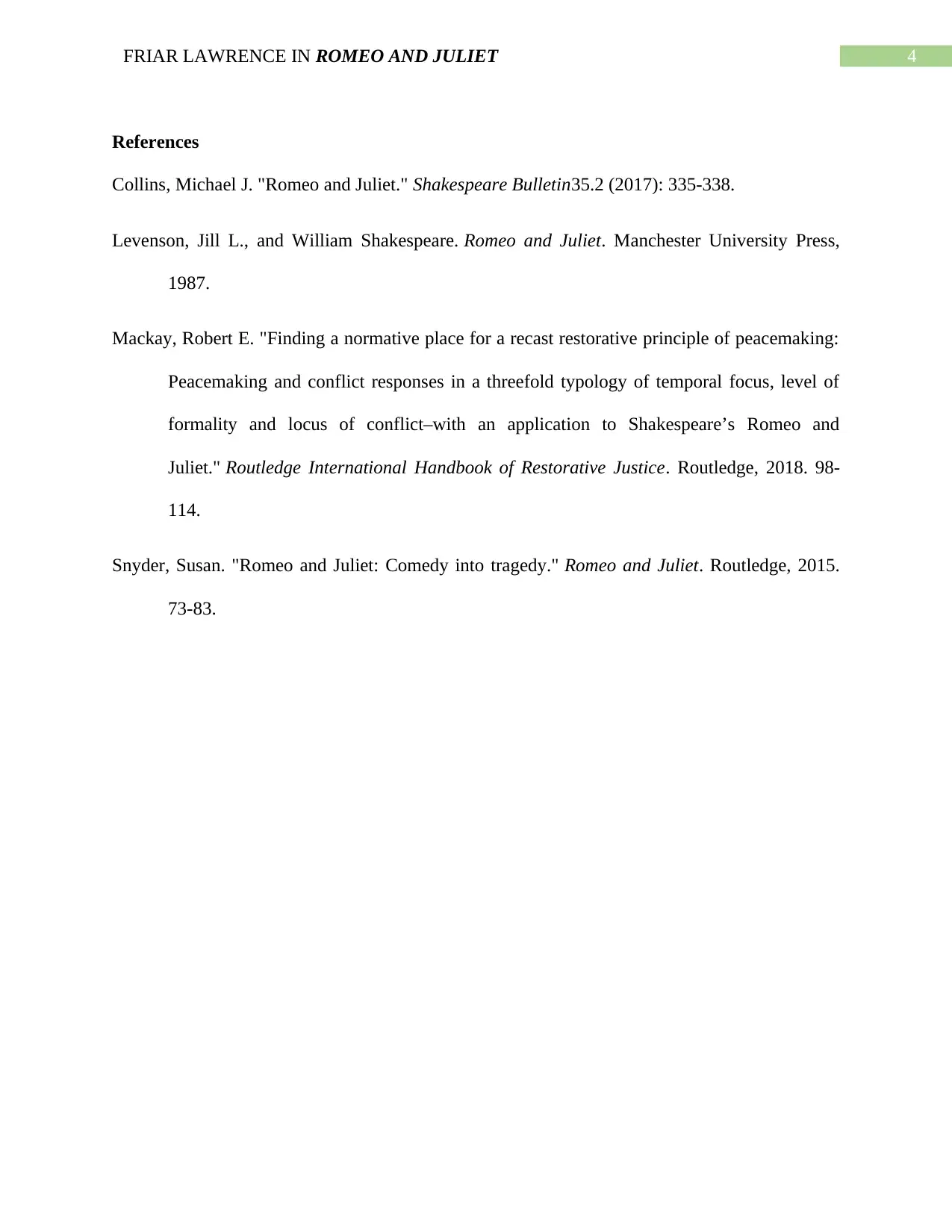Exploring Friar Lawrence's Protagonist Role in Romeo and Juliet
VerifiedAdded on 2023/04/20
|4
|730
|92
Essay
AI Summary
This essay explores the character of Friar Lawrence in William Shakespeare's Romeo and Juliet, arguing that he functions as a protagonist within the play. The analysis highlights Friar Lawrence's crucial role in supporting Romeo and Juliet's love, particularly his efforts to marry them and his hope that their union would bring peace to Verona. The essay examines his foresight, his encouragement of Romeo, and his knowledge of medicinal plants, including his creation of the potion for Juliet. Ultimately, the essay concludes that while Friar Lawrence's intentions were noble, his plans were thwarted by fate, contributing to the tragic end of the lovers. Desklib offers a variety of resources, including solved assignments and essays, to aid students in their studies.
1 out of 4








![[object Object]](/_next/static/media/star-bottom.7253800d.svg)